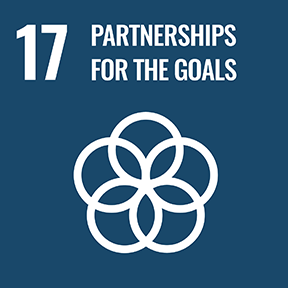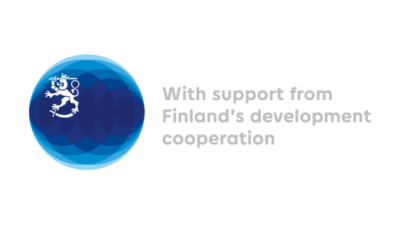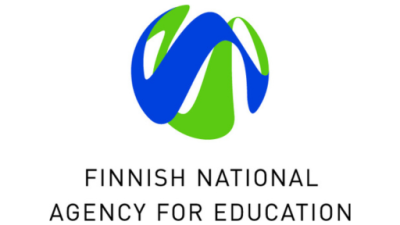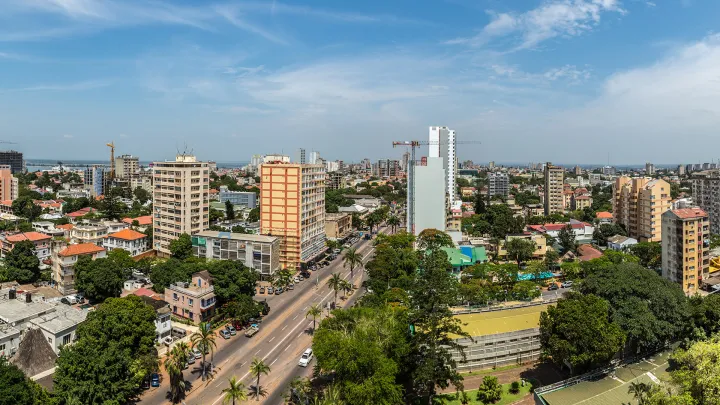Project
Towards inclusive and practice-oriented teacher education
Project sponsors
Project type
Focus area
Implementation time
1.1.2024
-
31.8.2026
Project unit
Financing program
HEP (Higher Education Partnership Programme)
UN Sustainable development goals

Project description
The overall aim of the TIPOTE project (2024-2026) is to improve the quality and relevance of teacher education programmes in two Mozambican Higher Education Institutions, UP-Maputo and ISET-One World. The project focuses on inclusive education and emphasises practical solutions.
The project builds on a broad understanding of inclusive education based on the universal human right to education, ensuring that all children - regardless their gender, remoteness, wealth, disability, ethnicity, language, or any other characteristic or situation - have access to school and learning. It aims at full and effective participation, accessibility, attendance, and achievement of all students, especially those excluded or at risk of being marginalized. This requires building inclusive learning communities where all are welcome and respected as equal and contributing members.
The project consists of two complementary approaches:
First, it aims to strengthen the human and technological capacity of the two Southern HEIs to improve the inclusive quality of their teaching (Outcome 1). This includes activities such as Training of Trainers, study visits, staff exchange and hands-on training on digital pedagogy. Technological capacity means upgrading hardware and software needed for improved digital learning.
First, it aims to strengthen the human and technological capacity of the two Southern HEIs to improve the inclusive quality of their teaching (Outcome 1). This includes activities such as Training of Trainers, study visits, staff exchange and hands-on training on digital pedagogy. Technological capacity means upgrading hardware and software needed for improved digital learning.
Second, that new capacity is taken into practice by innovating, piloting, and developing pedagogical practices in the Southern HEIs (Outcome 2). This includes using the Living Lab approach, piloting new approaches and methods, and building inclusive learning communities. A particular focus is put on STEM education to co-create new environmentally and economically sustainable methods for more context-relevant and practice-oriented learning that encourages diverse learners, including girls.
In practice, these approaches are integrated so that the innovation and piloting activities in Outcome 2 form a central part of the learning process and thus contribute to human capacity building in Outcome 1. TIPOTE is based on a partnership between four Higher Education Institutions that all provide teacher education: The Pedagogical University of Maputo (UP-Maputo), ISET One World, Jamk University of Applied Sciences and the University of Lapland. These four HEIs have experience of collaboration from the earlier Theory-Practice Balance in Teacher Education Project (TEPATE) 2020-2024.The project is funded by the Ministry for Foreign Affairs of Finland, Higher Education Partnership (HEP) Program.
Key results to be achieved:
Key results to be achieved:
- Increased capacity of selected teacher educators and administrative
staff in learner-centered inclusive education - Increased capacity to use
digital pedagogy and digital technologies in pre- and in-service teacher
education - Practical pedagogical solutions for more inclusive education are innovated, piloted and shared
- Pedagogical methods for STEM education created for improved
inclusivity and increased practice-orientation.
More information:
Project manager: Hanna Laitinen
Key experts: Irmeli Maunonen-Eskelinen, Kaija Peuna-Korpioja, Tuulia Kiilavuori, Jari Järvinen
Project results
During its first year of operation (2024), TIPOTE mainly proceeded according to plan. During the first months of the year, all project documents were reviewed again together with the partners (inception phase) and more detailed changes were made to them. The goal was for all key actors in the project to be familiar with the project's goals and functions and to feel ownership of it.
Under the first objective area, the following measures were taken:
1. Two Training of Trainers Weeks in Mozambique
2. Two benchmarking visits to other parts of Mosamibik (Gaza & Nampula)
3. Two bechmarking visits to neighboring countries (Botswana & Tanzania)
4. One staff exchange / study visit from Mozambique to the University of Lapland (5 people)
5. Planning and starting a mentoring programme for digital pedagogy
In the first year, it was not possible to make purchases of equipment and software that promote digital learning, even though it was planned. The reason for this was the complex and expensive procurement systems in Mozambique.
In the second objective area, the following measures were taken:
1. Cooperation agreements were signed with the partner schools of both educational institutions (UP-Maputo and ISET-One World) for tests and pilots
2. A common vision of the Living Lab operating model was created, a brochure was prepared for schools and preparations were made for its launch in 2025
3. Information was collected and plans were made for the methodological development of the teaching of STEM subjects and the writing of two joint articles on these subjects was started
In the first year, it was not yet possible to carry out Living Lab experiments at the school level. The operating model turned out to be more difficult to understand than expected and required further consideration. In addition, the post-election unrest in Mozambique significantly hampered all activities from October onwards.
31.12.2024
During the first half of 2025, the work carried out in the previous year was continued. The post-election unrest continued to be intense in January, so the order of activities in the project plans was modified so that the study trip from Mozambique to Finland was postponed earlier than originally.
In the first objective area, the following measures were taken:
1. Study trip from Mozambique to Finland (Helsinki and Jyväskylä)
2. Trainer Training Week in Mozambique
3. Implementation of the mentoring programme for digital pedagogy
4. Organising tenders and other preparations for the procurement of digital equipment
In the second objective area, the following measures were taken:
1. Examples of suitable practices for testing inclusive pedagogy at the school level were collected
2. Plans for starting Living Lab activities at schools were specified
3. Shared experiences, produced material and organised a webinar on issues related to inclusive and practice-oriented learning in STEM subjects
6.6.2025
Read more about our activities:

Hanna Laitinen
Lehtori, Senior Lecturer
Opettajankoulutukset, Teacher Education
Ammatillinen opettajakorkeakoulu, Professional Teacher Education
+358504731896
firstname.lastname@jamk.fi


